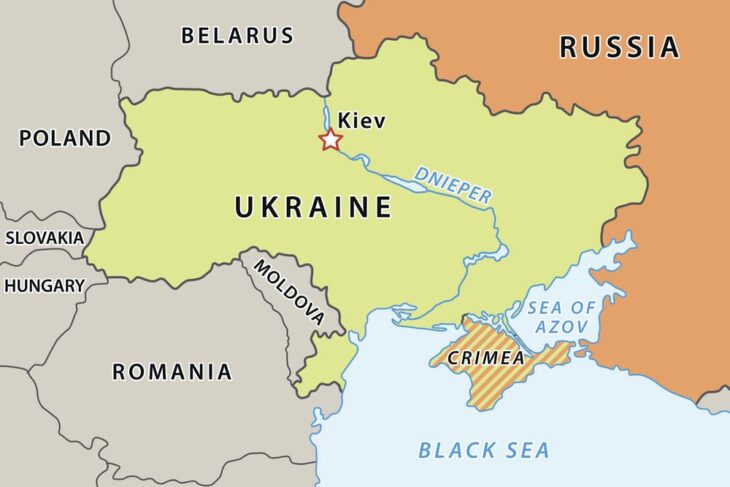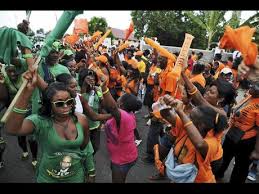
Parson christen him pickney first, a closed shop, the old boys’ club, patronage, nepotism. It is common knowledge and widely accepted that biases and prejudices exist and that people will, if left unchecked, naturally look after their own interests first. As a result, rules have been put in place, oversight bodies, policing mechanisms, and some form of democratisation (at least in the public sphere) which has meant that bodies of authority or power, in one form or another, are subject to rules and that the people who run these bodies do not look after themselves and their kin only but look after the whole.
Checks and balances can only be maintained if a body is accountable to someone. Your Member of Parliament selects the Prime Minister. If enough people wish to, then theoretically they could write their MPs demanding a change of the PM if, hypothetically, the PM enriched himself or herself and family.
The same goes for a company. At the Annual General Meeting shareholders discover the CEO enriching himself and family, they force him out and install someone else. The Catholic Church and Anglican Church, on the other hand, have no independent accountability and therefore corrupt actions, enrichment of family, and sexual crime go unpunished until and unless the scandal breaks through to the public eyes.
People, some well-meaning and others for selfish purposes, have pushed the notion that the State’s money and finances, that is the central bank of a State, can be above the political fray, that you can in essence have an independent central bank free from the whims of the finance minister and lousy citizens who would normally see the nation go broke. (This has been noted in the books Talking to my daughter about the economy by Yannis Varoufakis and Austerity – The history of a dangerous idea by Mark Blyth). This is an idea which, in theory, sounds brilliant: imagine a central bank which does not follow the fiscally unsound wishes of the minister, think of the trouble that can be saved.
We in Jamaica are no strangers to finance ministers who used the central bank in ways which were not fit. We have also become one of the countries to make its central bank independent as our finance minister hopes to create a true fiscal independence and free us from the shackles of future finance ministers who may want to further undermine our stability.
It is understandable that we want stability and growth and as a result feel that a central bank free from political interference may be the answer to the question, especially since on the face of it we can assume that a central bank devoid of politics and habits each party has of switching mid-stream fiscal policies, is one which would run efficiently and for the betterment of the nation.
Assumptions make an ass of you and me, is what my partner tells me, and the assumption made above makes not just an ass of us but actively leaves us to the whims of the very wolves an independent central bank was supposed to save us from.
To hammer this home, I will use the example of the POW camp, cigarettes, and the Red Cross. Picture it, WW2, Central Germany where Allied airmen are held in POW camps. The French pilots have a hankering for chocolate tea, the British for tea leaves. How to trade or make the exchange? Cigarettes. Everyone gets a constant supply of 5 per package from the Red Cross along with chocolate and tea, it becomes the currency of choice. Everything works here because the Red Cross is truly independent, unaware of what is going on, not caring, and simply distributing equally to let the consumers do as they wish. It is not a case of nicotine addicts at the Red Cross giving nicotine addicts in the camps more smokes, or a tea junkie in the RC giving a tea junkie in the camps a pass. It is truly independent, not caring and not sharing the same dilemmas faced by those in the camps.
The same cannot be said for a central bank, it is not the Red Cross, we are not POWs, and this is not a prison camp. Any head of the central bank will be picked from a pool of people. Do we truly believe that they will pick the bursar from your school or the accountant at your office to head the organisation, or some other person who shares your class interest or something close to it? Or do we think that the person tapped to head the bank will come from the ilk of the GK group, NCB, Scotia, PWC etc?
Already we will be seeing where a conflict of interest is going to be at play, and to go one step further, when these cigarettes (cash, approval of government policy and incentives) need to be doled out do we think it will be us the tea and chocolate (average worker) lovers who will be given priority, or do we think it will be the nicotine addicts who need the tobacco to get through the day without withdrawals? What do we think this nicotine addict at the helm will do: look after his own interests or the interests of those whom he not only shares, no struggle with, but is wholly unaccountable to?
The people selected will have a vested interest, an implicit or explicit bias towards those who not only put them there but to those who made them wealthy and continue to make them wealthy. It is not a guess based on the actions of other independent central banks that these people will act on behalf of the rich and powerful while ignoring the needs of those without wealth or power.
There is no such thing as an apolitical central bank. It is all politics. The eternal class struggle, and to think that the central bank or fiscal policy can or should be left to a ‘neutral’ ‘apolitical’ body is the height of naivety and should make you question the motives of those who announce it. If the masses vote for a government which dictates X and they seek to follow through on it, unless it breaches the rights of the people in which case it is a matter for the courts, no independent body should be able to stop it. If the people vote for total redistributive fiscal policies (more PATH investment etc) no authority should stop it, and conversely if the people vote for the most reactionary fiscal policies no independent authority should be able to block it.
Now, it is true, the newly independent central bank will have a policy committee drawn from all sectors of society to help craft monetary and fiscal policies, and I don’t doubt that this body will have well-meaning union reps and representatives of the working class. The issue comes about when we realise, again, that the fiscal committee has the power to poo-poo any proposal which goes beyond the agreed parameters and this fiscal committee is beholden to no one save in a few exceptional circumstances.
The citizens of this country have next to no powers, having given them all to our elected officials. Part of the deal in this one-sided relationship is that these people whom we give ultimate authority hold people accountable and make decisions on our behalf, the latter point being the most important. The workings of the central bank and the crafting of fiscal policy must be left in the hands of our imperfect and biased politicians because we can hold them accountable and not in the hands of individuals who, though appointed by Parliament, can only be removed, by committee, if they are insane, corrupt, abscond work, or misbehaviour and not for opposing a government’s set policy. We can vote them out, hound the party to have them resign, force upon the Parliament a Bill demanding the ability to recall and any number of things in order to remove politicians who make policies and decisions we don’t like or who are openly biased. We cannot do that with an independent body, just as we cannot remove judges from their positions no matter how much the people may clamour for it.
If we elect a government with the mandate to throw all our money in a dump and light it on fire, no independent body should be able to stop that. That is between the people if, and when they wise up, and their elected officials. We bawl about low and ever declining participation in elections, we cry in fear when we see polls which state emphatically that a dictatorship would not be a bad thing in this country, then we merrily go about our way and cede more power from the one area people have control to a body which will be beholden to the same powers which got us in this economic and fiscal quagmire in the first place, and then feign shock when people don’t have time for talk of democracy.
We should not make an ass of the people, they may very well accept it today, and even for the next 10 elections, but when we get a government that runs foul of these independent bodies, unaccountable to either the people directly or through Parliament, how do we think the people will respond? With the International Monetary Fund, World Bank and other capitalistic bodies now stating that more money needs to be spent on social welfare how will this body react when a government spends more than it takes in on, say, a hospital building or school building spree? Rather than deliberately hamstring ourselves or set ourselves up for a preventable future violent reaction, let us see sense and put the politics back in the central bank and in fiscal policy.
Everything is politics, and almost everything can be boiled down to the class war. To deny it is to be against the poor and working class. To embrace it simply means that you are aware of and accept reality. The powerful have got their way without an independent bank. We have had to fight for crumbs from a politicised bank. Let us not turn the wheel back and instead go the full way. Keep it politicised, keep fiscal policy politicised and let the best idea win, left v right and everything in-between. The marketplace of ideas is what they wanted, so let them have it and let us retain one of the few avenues we have as it relates to levelling this society.



